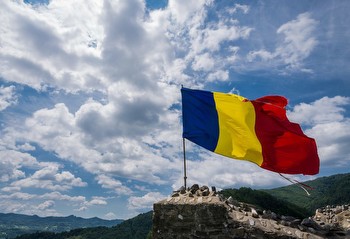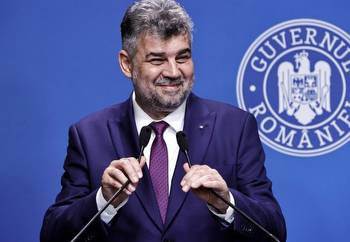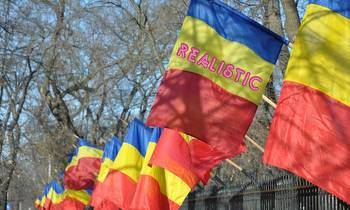A general introduction to gambling law in Romania
The Romanian primary gambling legislation (Government Emergency Ordinance No. 77/2009 on the organisation and operation of games of chance, as subsequently amended and supplemented (GEO 77/2009)) provides the following definitions for gambling products:
- Lottery – a game of chance that depends on the random outcome of events consisting of the drawing of numbers, letters, tickets or symbols, regardless of the procedure used and characteristics of the means used to make the draw (drums, wheels, cups and other similar equipment), and which can be organised (in the case of land-based activity) with or without the players being physically present. The legislation sets out the rule that both land-based lottery games and online lottery games come under the state monopoly and can be organised only by the Romanian state company, the Romanian Lottery.
- Betting – a game of chance where the participant must indicate the results of future events or where the results are randomly generated by an independent information technology(IT) system. The legislation expressly regulates three categories of betting: (1) fixed-odds betting (e.g., sports betting), (2) pari-mutuel betting, and (3) exchange betting, which can be licensed and authorised as land-based or online gambling.
- Casino games – games of chance that make use of specific gaming equipment such as cards, roulette, dice and gaming tables. A particularity of online casino games is that this category also includes online poker games and online slot machine games, thus permitting gambling operators licensed for online casino also to offer poker and slot machine gaming on their gaming platform.
- Poker – a game of chance using poker playing cards and, in the case of land-based activities, performed exclusively between the participants in specialised locations.
- Land-based slot machine gaming – defined by reference to one of the following three categories:
- slot machine games with unlimited stakes and winnings played via specific machines or equipment, with the players being physically present, operated in specialised premises where gambling takes place;
- games played via electronic devices that offer limited risk winnings (known in the industry as 'amusement with price' (AWP) machines) with the players being physically present but that cannot be placed in specialised gambling premises; and
- video lottery games, where the players are physically present and for which the gaming equipment must be connected to a central server that runs the gaming programme and validates the win.
- Bingo games – games of chance defined by reference to the means used in performing the activity:
- bingo games played in gaming rooms with the winnings generated by random elements that use lottery-type draw equipment and with the players physically present on the premises;
- bingo games organised via television networks, with the players not being physically present at the time of the draw; and
- online bingo games, which are played entirely without the players being physically present and are organised and transmitted via any kind of communication system.
- Keno games – games of chance regulated only as online gambling activities, and which are included in the category of online bingo and keno games.
- Tombola – the activity of drawing numbers, letters or other symbols, regardless of the characteristics of the mechanical, electronic, digital or video devices used to generate these or to make the draw, whereby players (a predetermined number of participants) may win prizes only in kind, where the value of the prizes must have a minimum value of no lower than 50 per cent of the total value of the stakes paid to participate in the game. Tombola games may be organised as both a land-based activity (with players being physically present) and an online activity.
- Temporary games – land-based casino games, slot machine games with unlimited winnings and traditional bingo games that take place in tourist resorts or on leisure craft, and which qualify as temporary games of chance and are subject to a special temporary licence and authorisation valid for a period of three months.
A distinct category of temporary games exists for poker festivals, which are defined by the law as temporary events organised in tourist resorts or other locations and which consist of poker tournaments performed exclusively between the participants. Poker festivals may be organised only by operators that hold a valid licence and authorisation in this respect.
In addition to the above categories expressly defined by the legislation, any other unregulated product that fulfils the conditions of a game of chance (public offering of the game, participation fee, chance and prize) is also subject to the licensing requirement, since the Romanian gambling regulator, the National Gambling Office (ONJN) is legally competent to analyse any such product and determine the category in which the product should be included. This analysis is performed based on a request filed with the ONJN by the operator of the unregulated gambling product, and the game rules and a description of the product must be attached to the request.
The legislation does not make any reference to products such as fantasy league, pool betting or spread betting. It is, however, expressly provided that 'fun games that do not imply winnings based on random elements but have the purpose to test the force, intelligence or skills of the participant' as well as 'sport games that are not mainly based on hazard, and imply skills and knowledge' are not considered to be gambling products and are permitted without a licence and authorisation. Separately, there is a legislative proposal seeking to regulate the esports phenomenon in Romania, which has been rejected by the Senate and is currently under examination in the Chamber of Deputies (the decision-making chamber). This legislative proposal aims to modify the existing law by introducing esports into the spectrum of regulated sports. Under the draft law, the category of esports is proposed to cover all activities performed in a virtual environment, in an organised and competitive manner via a computer or other electronic device, and taking place individually or in teams with a view to obtaining results in competitions. In addition to proposing this definition, the bill also intends to regulate new concepts such as: eplayers, eclubs, ecompetitions, esport arenas and esport associations.
Although current gambling legislation makes no reference to derivative financial products, the ONJN has stated in an official letter that binary options, as well as other types of secondary financial instruments expressly provided for within the Markets in Financial Instruments Directive, cannot be included on gambling platforms.
ii Gambling policyGambling is generally permitted in Romania, provided that the required licences and authorisations are obtained and the applicable legal provisions are observed in the course of business. Gambling is legally allowed in Romania in both its land-based and its online forms.
iii State control and private enterpriseAs a matter of principle, the very first article of GEO 77/2009 stipulates that the organisation and operation of gambling in Romania is a state monopoly and may be performed only within the specific legal parameters imposed by the gambling regime. However, the legislation creates a legal framework whereby any private operator that fulfils the requirements provided by the law is able to apply for a licence and authorisation to conduct gambling activities in Romania. Currently, the criteria and conditions according to which the licences are granted could not be considered as leading to an oligopoly or monopoly situation.
An exception exists in relation to lottery games. The legislation in force establishes that as a matter of principle both land-based and online lottery games can be organised only by the Romanian Lottery; therefore, this represents a state monopoly.
iv Territorial issuesRomanian gambling legislation expressly provides that the licence and authorisation granted to a particular operator allows that operator to conduct its activity on a national level, without the need to obtain approvals, authorisations or licences from public authorities other than the ONJN. This provision imposes a notification obligation on local authorities, which means that the operator is bound to inform the local municipality in advance about the commencement of gambling activities in that specific area.
v Offshore gamblingIn accordance with the legislation in force, only operators based in the EU, European Economic Area (EEA) or Swiss Confederation may apply for and obtain the necessary licence and authorisation to provide gambling services in Romania.
A situation in which a foreign economic operator provides gambling services in Romania without holding the relevant licence and authorisation issued by the ONJN is explicitly regulated by the legislation as a criminal offence sanctioned by imprisonment for a period of one month up to one year, or by a fine. Additional legislative sanctions are also expressly provided for a legal entity that offers unlicensed gambling services in Romania: the entity shall be dissolved and the amounts derived from the unlawful activity shall be confiscated.
As a separate tool to control and prevent unlicensed activities, the ONJN manages a blacklist, which encompasses all unlicensed gambling websites, platforms, brands, applications and websites that promote unlicensed gambling activities in Romania. This list currently comprises over 1,300 internet domain names. In this regard, the legislation also sets out that internet service providers (ISPs) as well as all service suppliers for the gambling industry, including payment service providers, are bound to comply with decisions taken by the ONJN. Specific reference is made to ISPs, which are required to ban access to blacklisted websites (as well as to those websites promoting unlicensed gambling) under sanction of a fine ranging from 50,000 lei to 100,000 lei.
Legal and regulatory framework
i Legislation and jurisprudenceThe conditions under which the organisation and operation of games of chance are permitted in Romania are outlined in the following legislative acts:
- GEO 77/2009;
- Government Decision No. 111/2016 for the approval of the methodological norms for implementation of Government Emergency Ordinance No. 77/2009 on the organisation and operation of games of chance (GD 111/2016);
- Government Emergency Ordinance No. 20/2013 on the establishment, organisation and functioning of the ONJN; and
- Government Decision No. 298/2013 on the organisation and functioning of the ONJN.
In addition to the above-mentioned legislation, gambling activities are also regulated by means of instructions, orders or decisions issued by the ONJN in relation to various aspects of gambling activity. The ONJN is a specialised body of the central public administration subordinated to the government.
Moreover, certain specific requirements regarding anti-money laundering and prevention of terrorism are also applicable to gambling activities, and these are generally contained in the following legislative acts:
- Law No. 129/2019 on the prevention and combating of money laundering and financing of terrorism;
- Order No. 37/2021 issued by the President of the National Office for Prevention and Control of Money Laundering for the approval of the regulation implementing Law No. 129/2019; and
- Order No. 370/2021 issued by the President of the ONJN for the approval of the instructions on the prevention and combating of money laundering and financing of terrorism in the gambling sector.
The ONJN is the public authority competent to supervise and control the Romanian gambling market and to grant licences and authorisations to gambling operators.
iii Remote and land-based gamblingThe gambling legislation distinguishes between online and land-based gambling, with both categories being separately defined in the legislation, as follows:
- land-based gambling activities are defined as all games of chance that fulfil the legal conditions related to a game of chance irrespective of whether they are expressly regulated by GEO 77/2009 and that are performed through gaming means installed in Romania and are not transmitted or performed through any kind of communication system (internet, landline or mobile telephone, or any other transmission systems); and
- online gambling activities are defined as comprising all the games of chance that fulfil the legal conditions applicable for a game of chance irrespective of whether they are expressly regulated by GEO 77/2009 and that are performed through communication systems of any kind (internet, landline or mobile telephone, or any other transmission system).
Pursuant to GEO 77/2009 and GD 111/2016, land-based gambling activities may be only operated in specialised locations, which are outlined below.
CasinosCasinos are the specialised locations used for the operation of games of chance characteristic to casinos. The surface area and structure of casinos must enable the installation of gaming equipment and other technical devices needed to carry out the specific activity and must be located in buildings intended for use as business premises or in hotels.
Casinos are subject to minimum legal requirements regarding the location of the premises, minimum surface area and safety equipment.
Betting agenciesBetting agencies are specialised locations for betting activities in which at least one dependent betting terminal is operated and which collectively meet several specific conditions in terms of minimum surface area, mandatory equipment, etc.
Locations for the operation of slot machinesAll premises used for the operation of slot machine gaming activities, irrespective of the type of slot machine, are subject to the following restrictions in relation to advertising for the premises:
- organisers will prevent viewing of the activities carried out within the premises; and
- organisers will not suggest gambling activities by using images, text or other symbols.
In addition, regarding the specific category of AWP slot machines, GD 111/2016 also provides for a general restriction on advertising in the sense that the operator is prohibited from advertising the gambling activity within the premises where this type of activity is conducted.
Locations for operation of bingo gamesPursuant to GD 111/2016, bingo games performed in specialised gaming halls may only take place in locations that will be placed in specialised premises or business premises that are registered as the operator's main or secondary office and that meet a set of mandatory conditions in terms of logistical organisation – sufficient electrical lighting system, air-conditioning system, sound system, safety-related requirements, back-up electrical circuit, etc.
v Remote gamblingOffering remote gambling products in Romania is subject to a licensing and authorisation procedure. To apply for an online licence and authorisation, several technical and operational requirements must be met. The following requirements are of particular importance:
- Localisation requirements – first, the main server of the operator must be located in Romania or another Member State of the EU or EEA, or in the Swiss Confederation. In addition, if the main server is not located in Romania, safe and mirror servers must be established in Romania.
- Use of Class II licensees – remote gambling operators may carry out their activities in Romania by relying only on the products and services offered by business-to-business (B2B) suppliers that hold a Class II licence issued by the ONJN. Activities that entail the obligation to obtain a Class II licence include software development, platform management, payment processing, marketing affiliation and audit and certification activities.
- Certification requirements – any operator applying for an online licence must hold a certification for the gambling system (both software and platform are included in the scope of certification) issued by a specialised testing lab that holds a Class II licence issued by the ONJN.
Pursuant to GEO 77/2009 and GD 111/2016, the gaming equipment or components used by land-based gambling operators to conduct their activity (e.g., roulette, slot machines, slot management systems) will be acquired only from an entity that holds a specific Class II licence issued by the ONJN.
Regarding the online gambling sector, as mentioned above, B2B suppliers are also subject to the Class II licensing requirement.
The legislation does not provide for a personal licence requirement for individuals holding specific positions within a gambling operator. There are, however, certain requirements for the licensing process that refer, in particular, to the directors and shareholders of the applying entity (e.g., criminal record checks, affidavits disclosing, among other things, the ultimate beneficial owners).
Remote gambling operators operating from outside Romania need to appoint an authorised representative in Romania to liaise with the ONJN, the tax authorities and any other relevant public or private institution. The authorised representative can be a legal or physical person. No specific training is required, other than a representation having been made under an affidavit that the person is knowledgeable about Romanian gambling legislation and gambling matters.
vii Financial payment mechanismsUnder current gambling legislation, the payment methods allowed in the operation of gambling activities are only the payment instruments used in the financial banking system and monetary means, including bank cards, provided that all payment and monetary means used (including bank cards) contain information about the natural person carrying out the activity by means of that payment instrument. As regards online gambling activities, the means of payment and the monetary means used, including cards, must be operated through a payment processor licensed by the ONJN and the online gambling operator must deposit the players' funds only in bank accounts opened at banks on the Romanian national territory. Considering the above, use of cryptocurrencies as a payment method in gambling activities is not currently allowed.






































